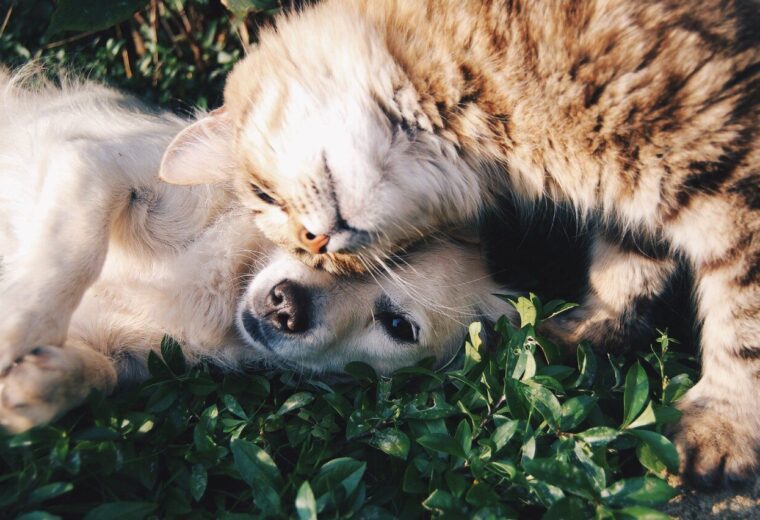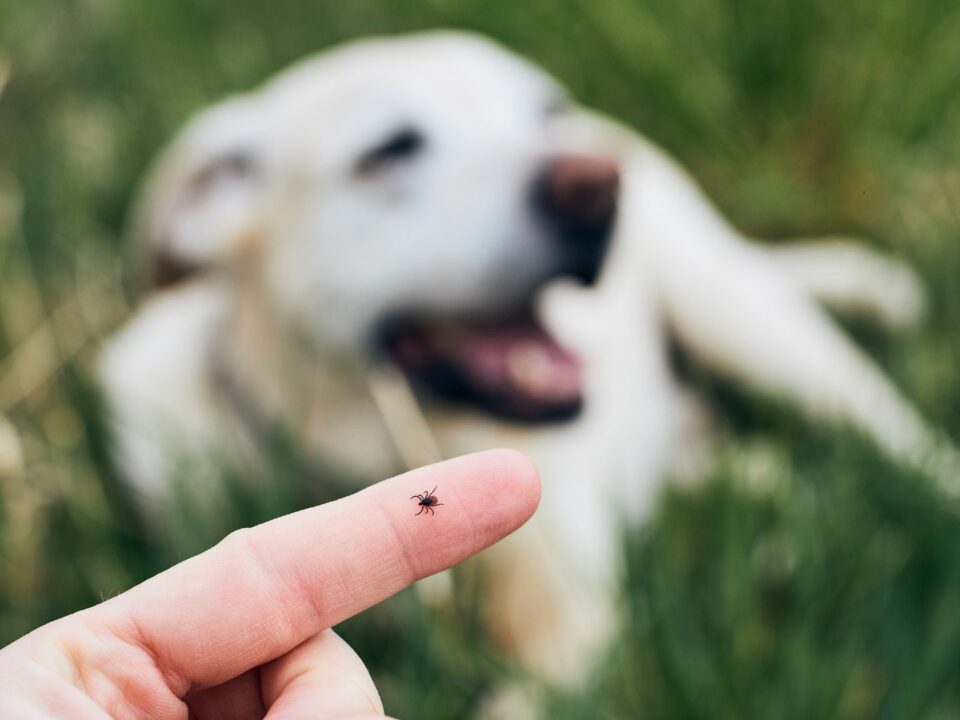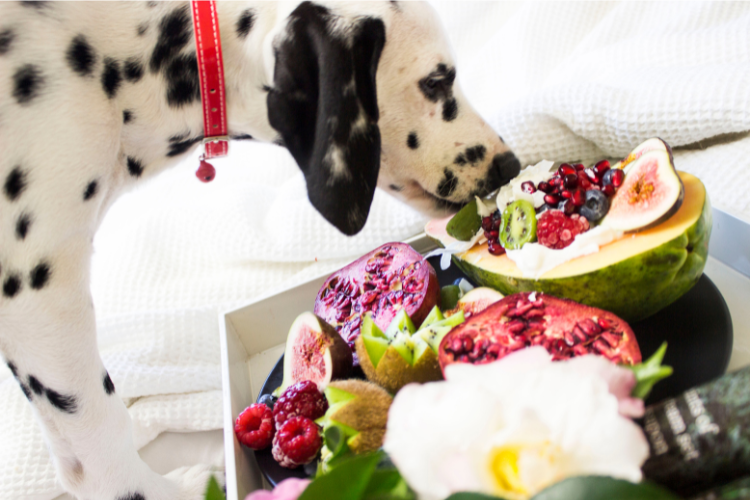
What to Feed Your Puppy
March 30, 2022
Cat Care for Beginners
August 8, 2022Signs of Hookworm in Cats & Dogs

If you’re lucky enough to own a pet, nobody could blame you for being anxious about the daily dangers posed to your furry friend. One of these dangers is hookworm.
Hookworms are parasitic worms that get their name from their hook-like mouthparts used to attach to the lining of the intestines of unsuspecting cats and dogs. They are only about 2-3mm long, but don’t be fooled; they can cause much damage. Mostly invisible to the naked eye, if hookworms are allowed to find their way into your fur baby, they will ingest large amounts of blood from the minuscule blood vessels of the intestinal wall. A group of hookworms can cause dangerous inflammation in the intestines while lowering the red blood cell count dramatically, resulting in anaemia. Once the hookworm has matured into an adult, it will produce eggs that pass through the infected animal’s stool to spread once more.
Hookworm is common in cats and dogs, who are subject to overcrowding and poor sanitisation. Still, they thrive in any warm and moist environment, threatening pets in many different living situations and backgrounds.
Dogs and cats, both indoor and outdoor, can get hookworm through:
- Drinking water infested with larvae
- Eating rodents or wildlife infected with hookworm
- Larval penetration of the skin if walking on an infected surface
- Drinking the milk of a mother with hookworm
- Gestation if the mother is infected
Unfortunately, the nature of both dogs and cats licking their paws, sleeping on warm patches of ground, and even sniffing faeces makes hookworm easily spreadable.
How to Spot Hookworm in Your Pet
The most significant signs of hookworm are distress and anaemia, which becomes especially suspicious in very young puppies and kittens. If left untreated for too long, the small bodies of young animals often can’t fight off the effects of hookworm and, as a result, are prone to succumbing to the infection. The hookworm will not only ingest the animal’s blood but release an anticoagulant to prevent the blood from clotting, putting the host in a world of worry.
Some physical signs of a hookworm infestation to look out for include:
- Pale gums
- Signs of distress or discomfort
- Uncharacteristic weakness
- Bloody stools or diarrhoea
- Significant weight loss
- Dry and dull hair
- Failure to thrive as a puppy or kitten
Diagnosis will require laboratory testing as the parasites are invisible to the naked eye, so if you notice any of the above signs or suspect an infection for any reason, it’s integral to get your pet to the vet as soon as possible. Additionally, if your pet is itching their paws excessively, this could be a sign of where the hookworm has originated, burrowing into the flesh from the ground.
Hookworm Treatment & Diagnosis
How To Get a Diagnosis
Hookworm diagnosis involves using a microscope to examine the stool using faecal flotation. The stool will be mixed with a solution that makes the eggs float to the surface, exposing them to a trained eye. This method may not work in young animals, so your vet may check the stool for hookworm antigens.
Creating a Treatment Plan
If an infection is present, further testing may be necessary to examine the blood and urine levels to determine the best treatment plan. Your vet will check for low haemoglobin levels or signs of dehydration to indicate the health of the blood and kidneys. The good news is that a wide range of treatments are available for dogs and cats when it comes to hookworm infections. In many cases, simply treating the hookworms is enough to place the host animal out of danger; however, if there has been a substantial amount of blood loss, further treatment may be needed. This can include a blood transfusion plus iron and nutritional supplements.
Medication
The drugs that eliminate hookworms are called anthelmintics and are given orally with few side effects. However, these drugs only kill adult hookworms; therefore, treating your pet again in two to four weeks is integral to killing any more hookworms that have matured. Hookworm larvae can survive for weeks in excellent, moist soil and faeces, so ensure you clean your yard well with the poop-a-scoop before allowing your pet to roam. Make sure to wear gloves – while a human infection is rare, it is possible, and the last thing you want is to make your pet’s health problem your own.
Prevention is Better than a Cure
While treating your lawn for hookworms or removing the risk altogether is impossible, prevention is always better than a cure. It is made simple with monthly hookworm preventative treatments.
Some extra measures you can take to prevent further infections include:
- Keep a clean environment and remove faeces often
- Maintain a healthy, balanced diet for your pet.
- Get your pet’s faeces checked at their annual or six-monthly check-up
- Keep your cat indoors and supervise your dog outside as much as possible
- Test any new pets before bringing them into the home, particularly if they have come from a shelter or the pound
- Ensure your new puppy or kitten is treated with a veterinarian-recommended hookworm preventative from only a few weeks old.
- Deworm your dog or cat if they are nursing newborns, as pregnancy can reactivate a dormant infection and pass it onto the litter.
Thankfully, long-term issues from a hookworm infection aren’t generally a concern, and with quick worm treatment, the prognosis is very favourable.
Worried about hookworm? We can help.
After decades of helping pets live their happiest and healthiest lives, we have dealt with our fair share of hookworm infestations. Our location in Rossmore places us near many suburbs of Greater Sydney, so good help is never far away. We’ve seen it all and will know the best course of action when assessing your pet.
Regarding hookworms, there isn’t much time to mess around, and thanks to our experience, we don’t have to. Our calm and confident nurses and vets will assess the damage and develop the best treatment plan based on your pet’s breed, circumstance, background, age, and level of infection. Our personalised focus on your pet can provide priceless peace of mind that the hookworm will be banished for good and your pet allowed to thrive once more.
Contact us today to book a consultation or treatment with our vets. We have a fully equipped 24/7 vehicle with an emergency vet that can come to your door if disaster strikes after hours, so your pet doesn’t have to wait a second longer for relief.
Simply call us on 02 9606 6984 during business hours or 0427 019 109 in the case of an emergency.



